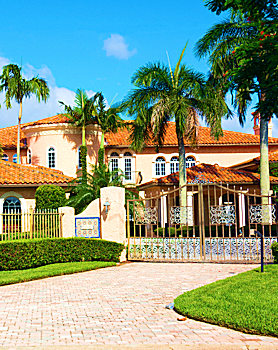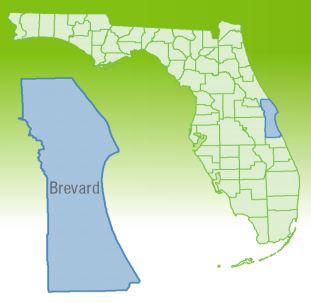Mortgage-Interest Cap Plan Would Be Unfair to High-end Markets
Mortgage-Interest Cap Plan Would Be Unfair to High-end Markets
By Andrew King
Few in the real estate brokerage community think the latest proposal to cap mortgage interest deductions will actually become law in Washington.
The Speaker of the House—an anti-tax Republican and leader of the same party of the plan’s author, Rep. Dave Camp, the chairman of the House Ways and Means Committee—dismissed the plan as soon as it was unveiled in February. Camp is calling for an ambitious overhaul of the tax code that would reduce seven income tax brackets to two and cut the corporate tax rate—while reducing other popular tax breaks such as the mortgage interest deduction (MID), which is currently capped at $1 million of the borrowed amount. The National Association of REALTORS® and countless broker/managers across the nation were quick to condemn the plan as well.
All of the opposition to the cap will most likely be too much for Camp to overcome, but that’s not what most brokers are worried about. The fear is that all the headlines about it will seep into the psyche of the American homebuyer—particularly those in higher-income areas, where a $500,000 mortgage is considered average or even below average—and dissuade them from buying because cutting that tax deduction would throw off the whole cost analysis.
“The news absolutely drives buying decisions even if there’s no news there,” says Drayton Saunders, president of Michael Saunders & Company, a leading real estate brokerage on the west coast of Florida. “Even if it never sees the light of day, it’s one more thing if it enters the macro-news cycle. It has a drag effect on the normal flow of what would be happening in the housing markets, and to me, that’s bad.”
Saunders reports that the Florida market is starting to heat up again along the coast, and most of the interest has been coming from traditional places, such as people relocating from the Northeast. But unlike some of the past transplants who were looking for sleepy retirement communities, today’s new Floridians are seeking more exciting urban experiences and proximity to job centers. According to Saunders, the building of new housing complexes with such amenities is a significant part of the region’s long-term growth strategy—and they’re likely going to put prices over that $500,000 threshold that people are beginning to fear even though it’s not likely to take effect.
“That million-dollar condo buyer moving from metro New York or Boston will be at a general price point that we need to sell. It affects that part of the community where we want to grow, the downtown market where we want people to move. This is just one more thing that a Florida buyer has to consider, and that’s concerning,” explains Saunders. “In the post-bubble world, we don’t take anything as background noise. At the leadership level, you have to follow these things.”
The proposed mortgage interest deduction cap is sparking fear in other high-end markets as well, including California and the Tri-State Area around New York City. In these markets, it’s not unusual for homebuyers to seek a mortgage of more than $500,000. “That’s like a starter garage in San Francisco,” says Saunders.
Ed Krafchow, executive vice president of Better Homes and Gardens Mason-McDuffie Real Estate, says the plan would be extremely unfair to the higher-end markets like the one he oversees in Northern California, a market where a multi-million dollar house would only be worth $500,000 in Texas or parts of the Midwest.
“Our average sales price within the company is something most of the country would be wildly jealous of,” he says. “Everything around here is at least in the $700,000 - $800,000 price range.”
Krafchow reports that his company recently listed a two-bedroom condominium in San Jose for $750,000 and it quickly sold for more than $900,000.
“It’s not all mansions. The impact goes all the way down to two-bedroom condos,” he says. “We’re selling condos at $1,500 per square foot. … It’s a ton of money.”
Krafchow estimates that if the new mortgage interest deduction cap plan passes, it would impact about half of his business. Other markets, which haven’t bounced back from the Great Recession as quickly, might not be seeing that many $500,000-plus sales right now. However, the fear is that they never will if the plan passes, and the recovery of the entire national economy could stall.
“To me, it feels injurious to the economy and not helpful,” says Krafchow.
“Since housing drives the U.S. economy, why would you be further tinkering with it?” Saunders asks. “I find it to be a concerning issue.”
The idea of Camp’s plan is to simplify the tax code for all Americans and reduce the national debt, which has been shrinking on its own due to the recovering economy and other ugly-yet-effective cost-cutting measures, such as the so-called sequester. But if the goal is to achieve these things by targeting the uber-wealthy, brokers say that the real impact would be detrimental to the middle classes in places like Chicago and New Jersey, where a $500,000 home is fairly average.
A more fair idea, brokers say, would be to place a variable cap on the top 10 percent of each real estate market regardless of price point—it could be $500,000 for Kansas City, but $5 million for New York City. That way the plan truly targets the rich and the relatively rich. The idea of a flat price target just seems unfair, and the fact that it probably won’t pass doesn’t make it all better.
“I’ve been around long enough to know that it’s never going to pass…until it passes,” says Krafchow. “I’m hopeful that someone comes to a rational place.”
Andrew King is an award-winning journalist with 15 years of experience with the Gannett newspaper company, appearing in The Journal News (Westchester, NY), Asbury Park Press and USA Today. He also contributes to The Real Deal, TheLadders.com and TechPageOne.com.
Reprinted with permission from RISMedia. ©2014. All rights reserved.






